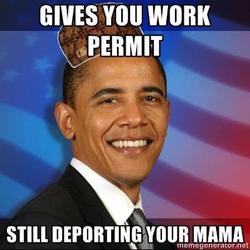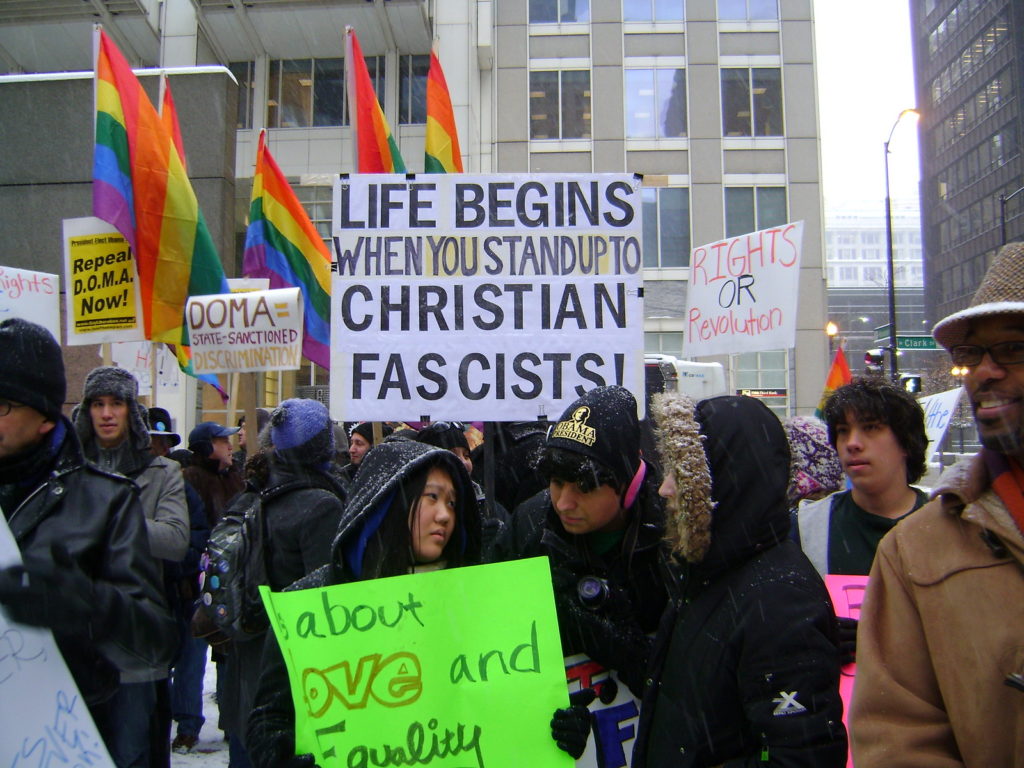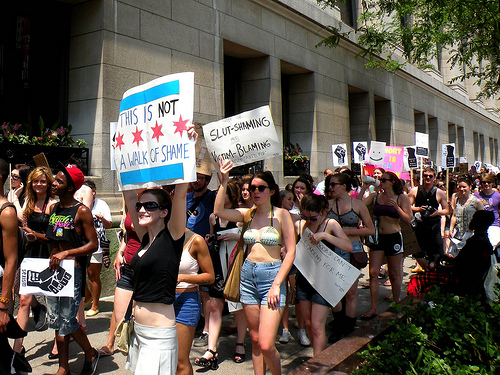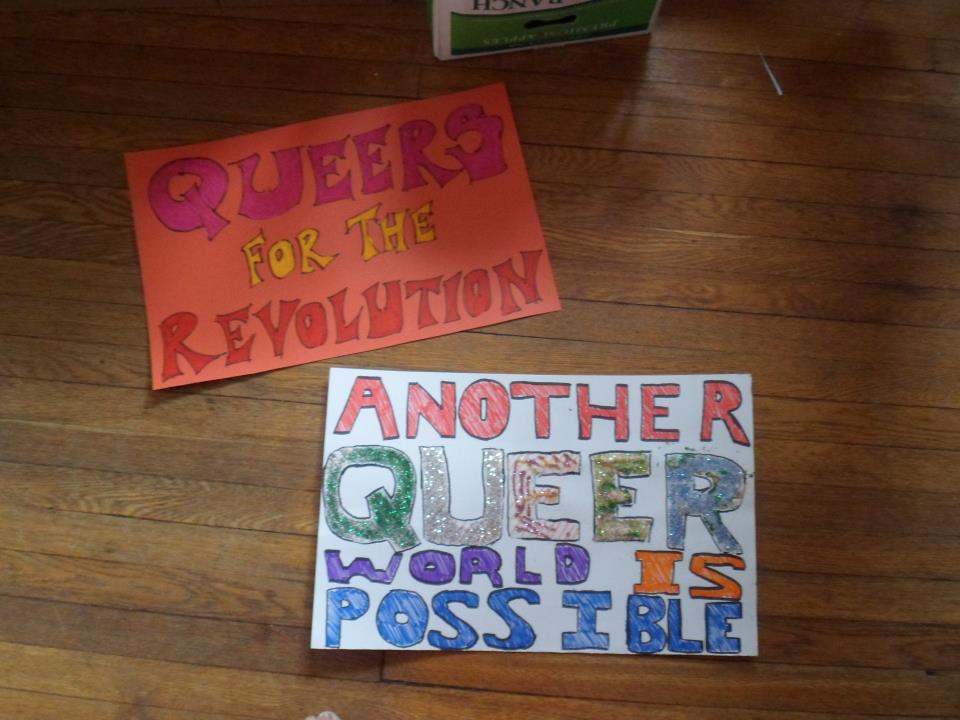
Category: Queer Politics, Culture, and History

“The people who are going to benefit the most from gay marriage will be the ones who already have the resources.”

I was part of a roundtable discussion on what it means to get “Beyond Gay Marriage” in In These Times. Many thanks to Rebecca Burns for initiating this.
An excerpt:
It is probably true that hate crimes legislation and anti-bullying laws in Washington are connected to gay marriage—but that is exactly the problem. Marriage solidifies the idea that the “inclusion” of LGBT people is the solution, and it has been accompanied by a push for inclusion in the military and in hate crimes and anti-bullying legislation. But this ignores the fundamental inequality perpetuated by these institutions—marriage, the military, the criminal justice system. Hate crimes and anti-bullying legislation are punitive measures that will drive the prison-industrial complex and the school-to-prison pipeline.
You can read the rest here. Contact me if you need a pdf.
The gay civil-rights activist Bayard Rustin was born a hundred years ago, on March 17, 1912. Considered the key organizer of the historical 1963 March on Washington, Rustin was involved in movements for racial and economic justice till his death in 1987. Yet, he is relatively unknown today and often deliberately stayed in the background, in large part because public knowledge about his identity as a gay man added to his vulnerability as an outspoken civil-rights activist.

Out filmmaker Bennett Singer is the co-director and co-producer, with Nancy D. Kates, of the critically acclaimed 2003 film, Brother Outsider: The Life of Bayard Rustin, about the gay, African-American civil-rights activist whom many consider the main organizer behind the historic 1963 March on Washington.



